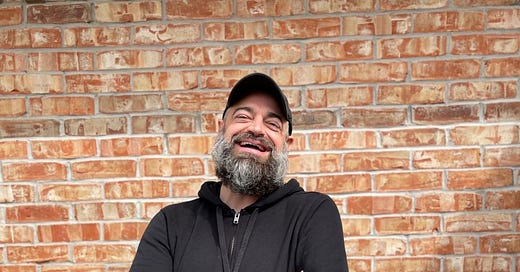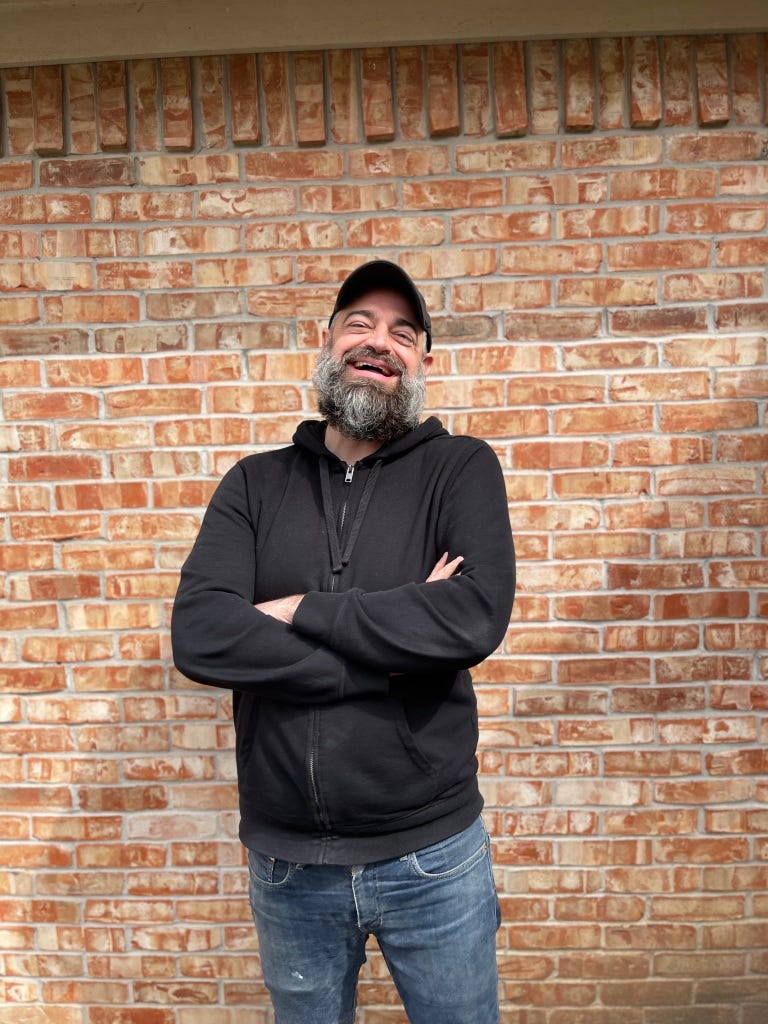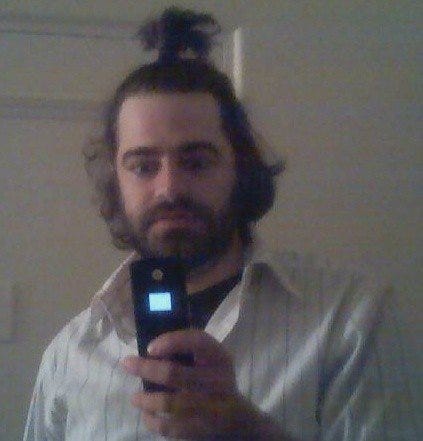I Don't Know How to Write about Brain Tumors
I think I’m asking you to do the impossible–I’m asking myself to do the impossible: Have a brain tumor, but don’t let it define me.
I don’t know how to write about brain tumors.
I guess it’s both all about the brain tumor and has nothing to do with the brain tumor at all. There is no cleaving the tumor from the person, while it is also true that a person isn’t their diagnosis.
Like how life changes after a doctor tells you that you’re going to die, and then you call your family and friends and tell them you’re going to die, and you realize after a couple calls, here we are. Where’s the parking ticket to leave the hospital garage? Life goes on–life without you goes on–and that’s well and good, but also, what the hell?
Have you ever made breakfast with acute knowledge of your own mortality?
Whitney wondered less than rhetorically, “I’m grateful we’ve had these four years together, but how do we live another four years like this?”
She asked that two years ago.
I can’t point to just what it is, or, it’s a lot of things, but there is no Adam that exists before his diagnosis. Memories we may not hold, but the stories that are their surrogates are what is left of that man. Pictures in a Facebook album called, “The Dark Ages,” that includes a grainy picture of me wearing my hair in a man-bun, holding a Motorola Razr ©. Everything changes, and nothing changes at all. There is an idea I’m trying to get onto: It’s about the brain tumor and has nothing to do with the brain tumor at all. It’s about life, maybe.
Writing about my life is writing about the brain tumor experience. Here is what I mean: Our neighbors have three boys, like we have three boys, and each of theirs are spread out a couple years apart like ours–though, their stair-step kids are each a couple years younger than our stair-step kids. Anyway, their kids are learning to ride their bikes, and I say, “Oh before my diagnosis, I used to commute to work on my bike,” gesturing to the road bike hanging from the ceiling-mounted brackets in our garage, thick with dust and cobwebs. Is that a story about a brain tumor or a story about me? The bike mounted in the garage is about a brain tumor.
See, I don’t know how to write about brain tumors.
There isn’t anything that isn’t about brain tumors anymore. (That’s funny. It’s a double negative, like when the oncologist said, “It’s extremely unlikely that you will not have a recurrence.”)
It’s our life. It consumes me/us. When something becomes so all consuming, it ceases to be a discrete datum of identity and becomes the whole of biography. I am not sure whether I am part of the brain tumor now or whether the brain tumor is a part of me, but it’s feeling more like the former. I think my book didn’t sell because it was a story about a brain tumor, but not a story about me. When writing a story about you, the you that is more a part of the brain tumor than the other way round, requires that you accept the diagnosis with all of you, and I’m not sure I’ve done that. Radical acceptance, or something. I can speak ad nauseum about the brain tumor experience, but never cohesively into one whole that is me with a brain tumor. Always two stories traveling along parallel tracks: One story about a man and one story about a brain tumor, and the confounding thing that I cannot manage to impart on you is whether these are separate stories or one. My identity is fragmented. I think this is what my brother meant several years ago when he cautioned me to write about myself as a character and leave myself in flesh and blood out of it. But I am also hard-nosed about this. I am the story about a brain tumor. I can’t get the story about me back out of it. The yeast is activated.
I want carte blanche to be a dying person, but I want to be taken seriously when I make plans for the future.
I want you to know that. Or, I wish you knew that. You expect me to be talking or writing about brain tumors. It’s on brand for me to do so. But I want you to know that with a fragmented identity, I can’t just lop off the part that I don’t like. Free will is the ability to choose to do otherwise, and I don’t feel free from this disease. I think I’m asking you to do the impossible–I’m asking myself to do the impossible: Have a brain tumor, but don’t let it define me. Don’t pity me, but know that I’m altered more each day. I want carte blanche to be a dying person, but I want to be taken seriously when I make plans for the future. It’s all about the brain tumor and has nothing to do with the brain tumor at all.
I don’t know how to write about brain tumors, but I don’t know how not to, either. I don’t know how to keep living like this, but I don’t feel free not to either.






